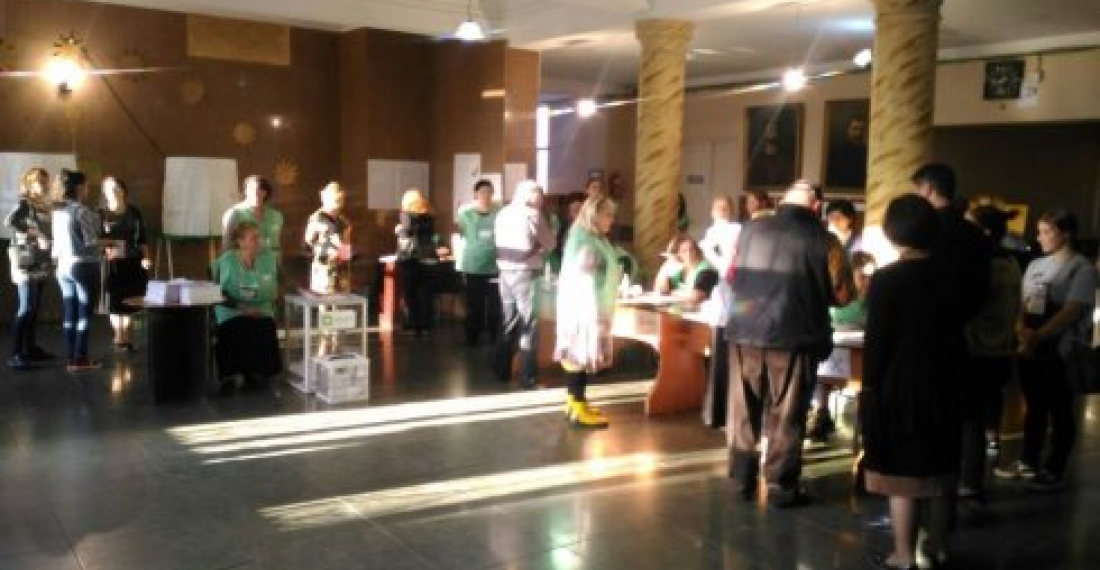Elections were held in Georgia on 8 October, to elect a new 150-member parliament. The elections passed off peacefully, except for a handful of isolated incidents, and resulted in a convincing victory for the incumbent Georgian Dream (GD) party, which secured 48.65% of the vote. The United National Movement (UNM) retained its position as the main opposition party securing 27.13% of votes. Only one other party, the Alliance of Patriots, managed to pass the threshold to secure seats in the parliament, after getting 5% of the vote. A total of 1,814,276 voters cast their ballots, equivalent to 51,63% of the electorate.
The elections were deemed by a number of observers, as well as local civil society organisations, as having been the best ever held in the South Caucasian republic. This was due largely to the fact that they were competitive and well-organised, and held in an atmosphere where fundamental freedoms were respected. Over 80,000 local and international monitors, party representatives and journalists observed the election process, and ISFED, a respected local NGO, conducted a parallel vote tabulation which tallied with the official result.
There were a number of tense moments in the last phases of the campaign, on election day and during the counting process. An explosion in a car of an opposition MP, days before the poll, was completely out of tune with the rest of the election campaign which passed off remarkably peacefully. On election day, in one of the mainly Azerbaijani speaking regions, Marneuli, a crowd attacked a polling station; and during the count on the other side of the country, in Zugdidi, supporters of one candidate disrupted the counting. Overall however, the elections proved that democracy has taken root in Georgia.
GD hailed the election results as a vindication of its policies since taking power in 2012 in what remains a rare example of a peaceful transfer of power through the ballot box in the post-Soviet space. After agonising for several days on its post-election strategy, the UNM announced it will take its seats in Parliament, and participate in the second round of the elections, to be held later this month in those constituencies where the elections in the single seat majoritarian constituencies were inconclusive.
The vote gave an overwhelming endorsement to Georgia's pro-European parties. Both GD and UNM campaigned for closer relations with the EU and NATO, as did a number of other parties who did not win seats in the new parliament. The Patriots Alliance, a conservative force that has xenophobic tendencies, has an ambivalent position on the issue, although its leadership insists it is not against Georgia's European aspirations.
The election was a disappointment for a number of the smaller parties that failed to secure enough votes to pass the 5% threshold needed to get into parliament. The Republican party, led by the outgoing Chairman of Parliament, David Usupashvili, and the Free democrats, led by former Defence Minister, Irakli Alasania were among the parties that were squeezed out in the last days before the poll as the campaign turned into a polorised contest between GD and UNM. Supporters of the smaller parties at the last moment drifted back to the two main parties fearing their votes will be wasted if they vote for the smaller parties.
The elections on 8 October were not perfect, but they were the best Georgia ever held, and by far better than those seen in neighbouring countries. Georgia continues to be the exception in the post-Soviet space: determined to pursue a pro-European and Euro-Atlantic path, and embracing democratic principles and practices. These elections were a clear testimony of this.
The United States and the European Union congratulated Georgia on holding successful elections. A statement by the European Union stated that "The European Union is committed to a stable, democratic and prosperous future of Georgia. Once the electoral process has been completed, we look forward to working with the democratically elected new Parliament and Government to deepen our political and economic relations based on the joint commitments of the EU-Georgia Association Agreement. It will be important that all representatives elected to the new Parliament work together in the interest of Georgia."
Source: This report was prepared by the editorial team of Caucasus Concise






